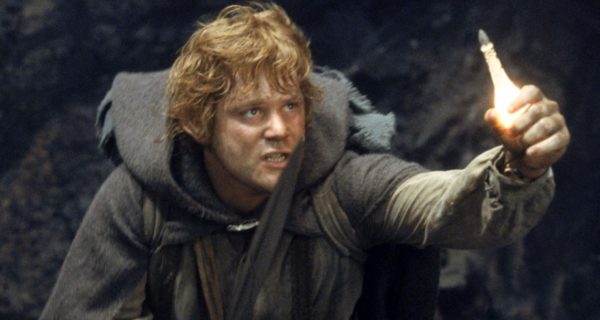J.R. R. Tolkien, the noted English don and author of The Lord of the Rings, wrote that, as “a Christian, and indeed a Roman Catholic”, he did “not expect “history” to be anything but a ‘long defeat’ – though it contains (and in a legend may contain more clearly and movingly) some samples or glimpses of final victory”. Indeed, The Lord of the Rings is, in part, a meditation on what may be dubbed Tolkien’s theology of the “the long defeat” – a theology that pro-lifers must themselves embrace, as an informing pro-life ethic, if we are to work towards “final victory”.
It seems to me that to be pro-life we must live in hope. As Sam the hobbit says in The Lord of the Rings: “Where there’s life, there’s hope.” And we should not confuse Tolkien’s theology of history for a counsel of despair. Tolkien, especially as a Catholic, knowing that despair was a sin, was no defeatist. As we can see in The Lord of the Rings, good must face up to evil. But more importantly, good must not give in to despair.
Accordingly, Denethor, the unhappy Steward of Gondor, introduced towards the latter end of Tolkien’s epic, is a model of exactly what a pro-lifer should not be, even when faced with political defeats, such as the referendum in Ireland. Using one of the Palantíri seeing stones to view the vast might of Mordor’s armies, Denethor is driven to despair by the prospect of his kingdom’s forthcoming annihilation. “Soon all shall be burned. The West has failed. It shall all go up in a great fire, and all shall be ended. Ash! Ash and smoke blown away on the wind!”, he cries. Having been tricked by the Palantíri into believing that his city’s fall is inevitable, Denethor succumbs to a disempowering fatalism that leads him to commit suicide atop his own funeral pyre.
What it means to resist evil, in The Lord of the Rings, then, is a character’s willingness to withstand the temptations towards despair and defeatism, which Frodo the Ring-bearer, who takes the One Ring all the way to Mount Doom, does as best as he can, going forth in hope of final victory.
“I wish it need not have happened in my time”, says Frodo, who could easily be speaking for the young Tolkien who wished he did not have to suffer the horrors of his century. Yet, as Gandalf says: “So do all who live to see such times. But that is not for them to decide. All we have to do is decide what to do with the time that is given us.” Frodo, heeding these words, is heroic so long as he is hopeful.
Indeed, The Lord of the Rings emphasises for us that to be “pro-life” is to affirm that life is, in this hopeful sense, worth living and not in vain. By definition, the pro-lifer rejects Denethor when he proclaims in life-denying self-pity: “Battle is vain. Why should we wish to live longer?” This is the same defeatist, anti-life ethic that treats the raising of a child as a problem that cannot be overcome. Although “hope is not victory”, as Gandalf says, hope is necessary and synonymous with the pro-life cause.
“Always after a defeat and a respite, the Shadow takes another shape and grows again”, Gandalf tells Frodo, as once again evil threatens to cover Middle-earth in darkness. Completing his great epic in the aftermath of the Second World War, Tolkien was all too aware of the murderous nature of history. Having served as a soldier in the First World War, Tolkien was not naïve enough to believe that victory in 1918 or 1945 was anything more than a brief respite from the evil of the world. Nevertheless, Tolkien realised that to be pro-life is to live in hope and work towards final victory, as it says in Ecclesiastes 9:4-5:
“To him that is joined to all the living there is hope…. for the living know that they shall die: but the dead know not any thing, neither have they any more a reward.”
